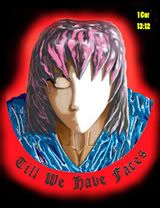TEHRAN (Reuters) - His call for the destruction of Israel may have grabbed headlines abroad, but it is President Mahmoud Ahmadinejad's devotion to a mystical religious figure that is arousing greater interest inside Iran.
In a keynote speech on Wednesday to senior clerics, Ahmadinejad spoke of his strong belief in the second coming of Shi'ite Muslims' "hidden" 12th Imam.
According to Shi'ite Muslim teaching, Abul-Qassem Mohammad, the 12th leader whom Shi'ites consider descended from the Prophet Mohammed, disappeared in 941 but will return at the end of time to lead an era of Islamic justice.
"Our revolution's main mission is to pave the way for the reappearance of the 12th Imam, the Mahdi," Ahmadinejad said in the speech to Friday Prayers leaders from across the country.
"Therefore, Iran should become a powerful, developed and model Islamic society."
"Today, we should define our economic, cultural and political policies based on the policy of Imam Mahdi's return. We should avoid copying the West's policies and systems," he added, newspapers and local news agencies reported.
Ahmadinejad refers to the return of the 12th Imam, also known as the Mahdi, in almost all his major speeches since he took office in August.
A September address to the U.N. General Assembly contained long passages on the Mahdi which confused Western diplomats and irked those from Sunni Muslim countries who believe in a different line of succession from Mohammed.
This fascination has prompted wild stories to circulate.
Presidential aides have denied a popular rumor that he ordered his cabinet to write a letter to the 12th Imam and throw it down a well near the holy city of Qom where thousands of pilgrims come each week to pray and drop messages to the Imam.
SECRETIVE SOCIETY
But what really has tongues wagging is the possibility that Ahmadinejad's belief in the 12th Imam's return may be linked to the supposed growing influence of a secretive society devoted to the Mahdi which was banned in the early 1980s.
Founded in 1953 and used by the Shah of Iran to try to eradicate followers of the Bahai faith, the Hojjatieh Society is governed by the conviction that the 12th Imam's return will be hastened by the creation of chaos on earth.
Ahmadinejad, who is only the second non-cleric to become president since the revolution, has made clear his immense respect for Ayatollah Mohammad Taghi Mesbah-Yazdi, a deeply conservative cleric with close ties to the Hojjatieh-founded Haqqani theological school in Qom.
Conspiracy theorists, never in short supply in Iran, allege that many members of Ahmadinejad's cabinet and other key appointees are Haqqani graduates and Hojjatieh followers.
"It seems that they (Hojjatieh members) have recently become more active and are spread through the government," said a political analyst who declined to be named.
"The president has repeatedly said his government will pave the way for the Imam's return."
But others point out that many former government officials, perceived as moderates, graduated from Haqqani.
Haqqani's continued links to Hojjatieh, though rumored, have not been proven and it remains one of the most prestigious theological schools in Qom.
Ahmadinejad's emphasis on the importance of development and justice to encourage the Mahdi's return, also suggest an important divergence from Hojjatieh thinking.
But he would be better advised to focus his speeches on practical rather than religious issues, said former Vice-President Mohammad Ali Abtahi.
"Of course, we must pray for the return of the Imam, but we must also tackle inflation and unemployment," the reformist cleric told Reuters.







